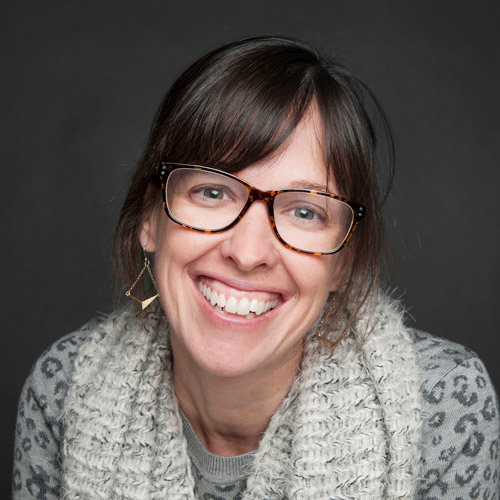Faculty & Staff Assistance Office: a Valuable Resource for BU Employees and Their Families
Trained staff provide free and confidential counseling for personal and work-related challenges

The FSAO team: clinician Sarah Henderson (from left), administrative coordinator Colleen McGuire, and director and clinician Karen Brouhard.
Faculty & Staff Assistance Office: a Valuable Resource for BU Employees and Their Families
Trained staff provide free and confidential counseling for personal and work-related challenges
With everything occurring in the world right now—climate disaster, mass shootings, a never-ending pandemic, and the skyrocketing cost of living, for starters—it’s easy to feel overwhelmed. That’s true for anyone, even for adults who might already have strong coping skills and support networks.
For employees of Boston University, that’s where the Faculty & Staff Assistance Office (FSAO) comes in.
The FSAO, BU’s long-standing employee assistance program, provides free and confidential support to employees and their immediate family members for personal and work-related mental health concerns. There are two offices, one on the Charles River Campus and another on the Medical Campus. The FSAO’s services are available to all employees, regardless of whether they’re full-time or part-time. Services are available both in person and remotely, via Zoom.
What are those services? The office staff—which currently consists of director and clinician Karen Brouhard, clinician Sarah Henderson, and administrator Colleen McGuire, with plans to add a third clinician—provides employees with consultations, counseling, and referrals to community resources and local providers. Support areas include everything from anxiety and depression to substance use to family and couples counseling and beyond.
“There’s been such a high level of stress lately; people are struggling more with the intensity of their anxiety and depression—or their kids are struggling, which also puts stress on parents,” says Brouhard. “Our hope is that employees get the help they need from coming to us, whether that’s from a few counseling sessions or from a referral that addresses the concern they have.”
For work-related issues, the FSAO can help with concerns regarding conflicts with colleagues, anger management, retirement, and stress and burnout, among other topics. (Information about many of these topics is also available online.) Additionally, the office offers consultations for managers about supporting employees as well as presentations to schools and departments about mental well-being.
Resources-wise, the office has a wide variety of online tools, including webinars, videos, information guides, and a mental health self-assessment screening. Plus, it offers free access to Headspace, a popular mindfulness app, as a part of employees’ benefits package.
Because it has such a small team, the FSAO primarily operates on a short-term counseling model, Henderson says. But the referral network is vast. “We spent a lot of time vetting and cultivating relationships with providers in the community, so that when employees and their family members come to us, we can really help them make an informed decision about who might be a good fit,” she explains.
That’s one of the office’s most beneficial services, Brouhard says. As anyone who’s ever tried to find a therapist knows, the process can be arduous. Attempting to find someone who fits your clinical profile, is accepting new patients, and takes your insurance “is why people can give up on” accessing needed care in the first place, she says. (Many providers vetted by the office accept BU’s Blue Cross Blue Shield insurance plan, as well as other plans.)
That difficulty can be especially true for those seeking providers with specific identities, Brouhard adds. “We often find that people want to see a person of color or someone who identifies as queer.”. With FSAO’s extensive roster of providers, “not only do we do the legwork, but we’re able to very carefully respond to people’s interests in certain identities with the appropriate clinical experiences.”
And clients can be sure all correspondence and interaction with the office is fully confidential.
“People may have concerns that if they see someone within their workplace, that information will not be kept confidential,” Brouhard says. “But we have very strict guidelines; we keep even the fact that someone has come to our offices confidential.” That also extends to scheduling for in-person appointments—the FSAO is mindful of overlap in the waiting rooms, particularly for employees from similar departments.
At such a large institution, it can be easy for employees to feel lost in the fray, or to not know where to turn for resources. Not to mention that mental health can often take a back seat to busy schedules, sick kids, and other day-to-day concerns. But whatever might be on your—or a loved one’s—plate, the FSAO is there to help you navigate through it.
“We want people to know that their mental well-being is important to us, and that it’s important to the University,” Henderson says.
The Charles River Campus FSAO is at 888 Commonwealth Ave. and on the Medical Campus at 85 East Newton St. To access the FSAO’s services at either location, fill out this intake form, call the office at 617-513-5381, or email fsao@bu.edu.


Comments & Discussion
Boston University moderates comments to facilitate an informed, substantive, civil conversation. Abusive, profane, self-promotional, misleading, incoherent or off-topic comments will be rejected. Moderators are staffed during regular business hours (EST) and can only accept comments written in English. Statistics or facts must include a citation or a link to the citation.